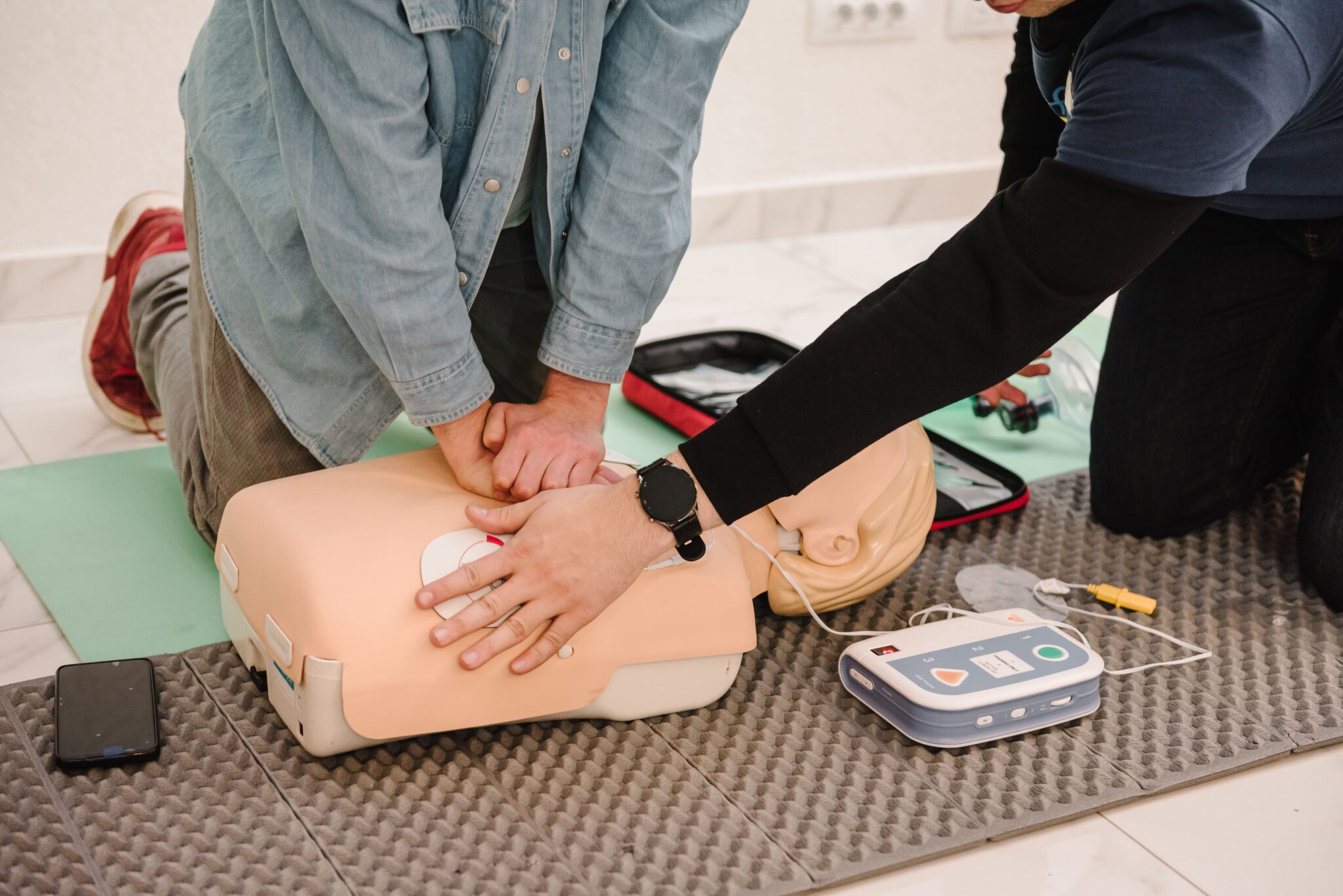
Safety Training Seminars in Concord, CA, offers American Heart Association BLS certification courses designed for healthcare professionals and first responders. These comprehensive courses include hands-on training, blending theoretical knowledge with practical skills to ensure participants are fully prepared for real-world emergencies. From mastering CPR techniques to operating an AED, the training equips attendees with life-saving abilities they can confidently use in critical situations. Plus, certifications are issued immediately upon successful completion, valid for two years.
With flexible scheduling options, including evenings and weekends, the program accommodates busy professionals. Whether you’re a nurse, EMT, or medical student, these courses provide essential skills needed in high-pressure environments.
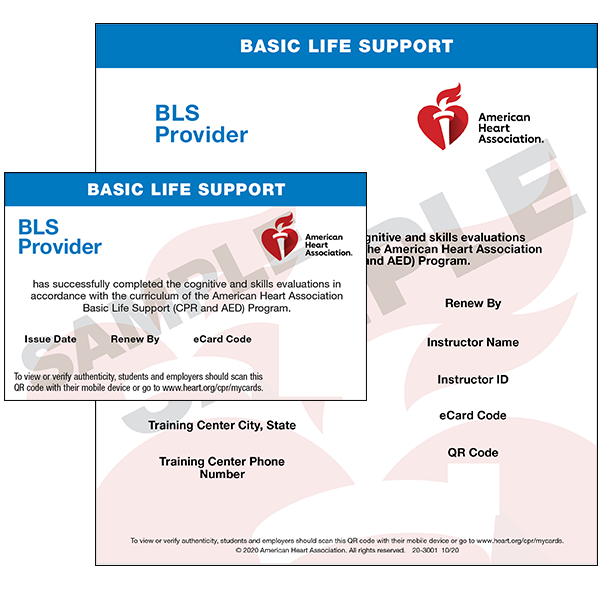
Basic Life Support
Online Course: 1-2 hours
Skills Testing: 30 minutes
100% Pass Rate Guaranteed
Lowest Prices In California
Receive Card On Class Day
Thousands of 5 Star Reviews
CE Credits to CA Dentists
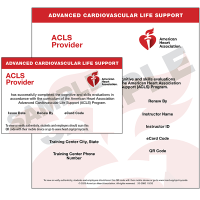
Advanced Cardiac Life Support
Online Course: 2-3 hours
Skills Testing: 30 minutes
100% Pass Rate Guaranteed
Lowest Prices In California
Receive Card On Class Day
Thousands of 5 Star Reviews
Some Professions: 2-3 CEU
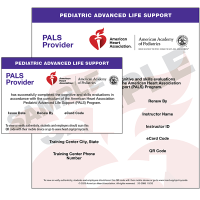
Pediatric Advanced Life Support
Online Course: 2-3 hours
Skills Testing: 30 minutes
100% Pass Rate Guaranteed
Lowest Prices In California
Receive Card On Class Day
Thousands of 5 Star Reviews
Some Professions: 3.75-5 CEU
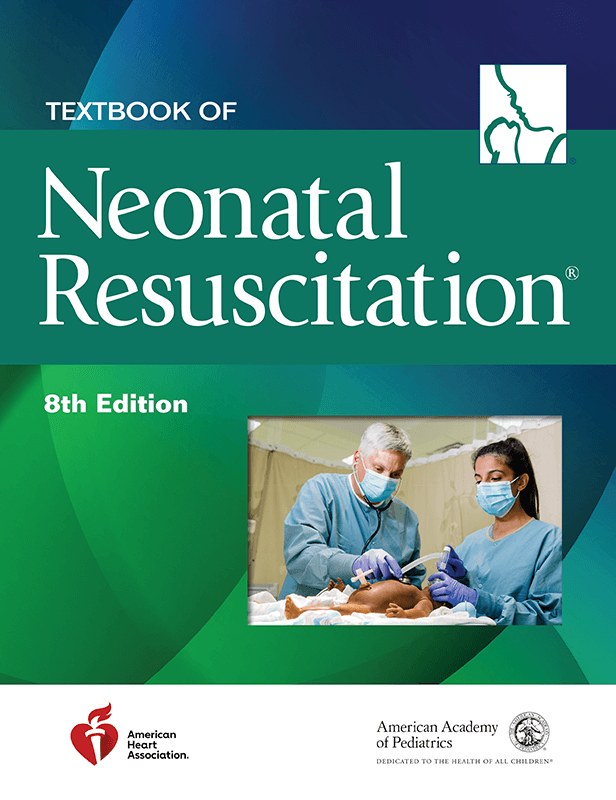
Neonatal Resuscitation Program
Online Course: 2-3 hours
Skills Testing: 3 hours
100% Pass Rate Guaranteed
Lowest Prices In California
Receive Card On Class Day
Thousands of 5 Star Reviews
Some Professions: 4 CEU
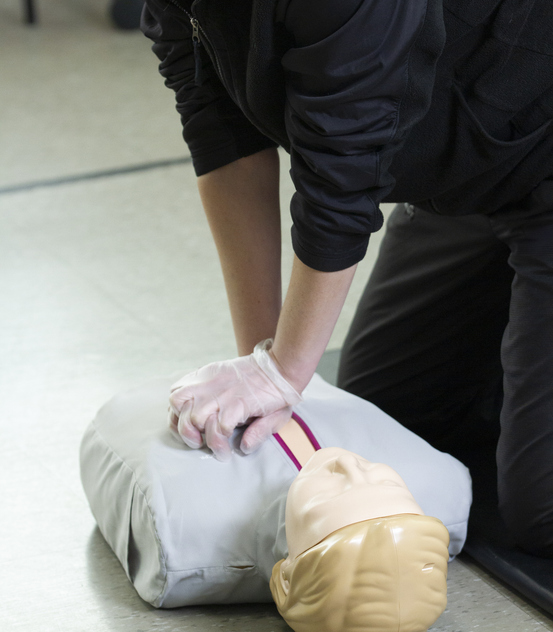
Audience: General public
Topics: CPR for all age groups, AED use, bleeding, epi-pen, etc
Online Session: 1 Hour
Skills Testing: 30 minutes
Card: Safety Training Seminars
Certification: Valid 2 years
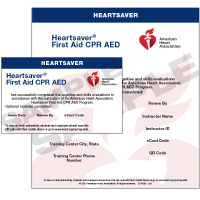
Audience: General public
Topics: CPR for all age groups, AED use, bleeding, epi-pen, etc
AHA Online Course: 1-2 Hours
Skills Testing: 30-45 minutes
Card: American Heart Association
Certification: Valid 2 years
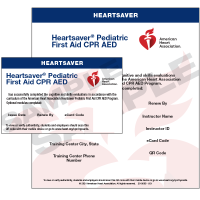
Audience: CA childcare providers
Topics: CPR for all age groups, AED use, bleeding, epi-pen, etc
AHA Online Course: 1-2 Hours
Skills Testing: 30-45 minutes
Card: American Heart Association
Certification: Valid 2 years

Audience: Childcare providers
Topics: Lead poisoning, nutrition, infectious disease,etc
Zoom Course: 8 Hrs (state law)
Skills Testing: 30-45 minutes
Card: EMSA Health & Safety
Certification: No expiration
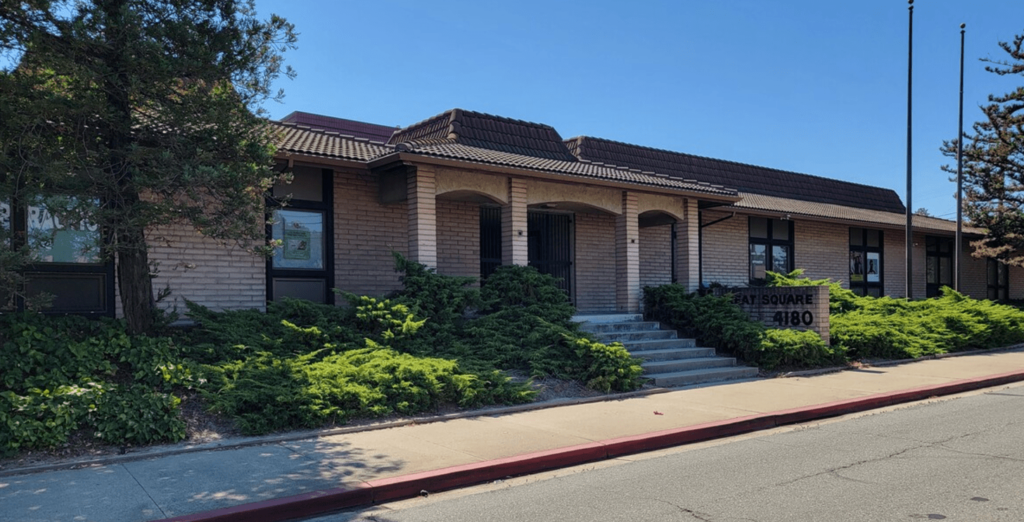

Our Willow Pass CPR Certification office is located at 1320 Willow Pass Road. The suite is located up on the 6th floor and this office offers free parking in the parking garage.
We’re thrilled you chose our American Heart Association training in Concord! If you found value in your experience, we’d be so grateful if you could take a moment to leave us a review on Google, Yelp, or Facebook.
As a women-owned small business rooted in Concord, your feedback helps strengthen our connection with the community. Positive reviews make it easier for neighbors to discover our services and ensure we can continue offering life-saving training to those who need it most.
Many of our students hear about us from fellow Concord residents—nurses, teachers, parents, and other professionals who have completed our courses. Your review doesn’t just help our business; it also guides others toward gaining skills that can save lives.
Thank you for supporting us and helping improve access to vital training in our local community! We truly value your honest feedback.
Safety Training Seminars in Concord offers expert-led BLS, CPR, and First-aid classes designed to equip you with essential life-saving skills. Whether you’re a healthcare professional, a teacher, or a concerned parent, these courses provide practical, hands-on training tailored to real-world emergencies. From performing high-quality CPR to using an AED or addressing injuries, each class ensures you’re prepared to act with confidence when every second counts.
Conveniently located in Concord, our training center is easily accessible for local residents and professionals. With flexible scheduling options, it’s simple to find a class that fits your busy lifestyle. Our experienced instructors create a supportive learning environment, breaking down complex techniques into easy-to-understand steps, so you leave feeling empowered and ready to make a difference.
By completing these courses, you’re not only gaining valuable skills but also contributing to a safer community. The knowledge learned here has the power to save lives, whether at work, home, or in unexpected situations. Join us at Safety Training Seminars in Concord and take an important step toward protecting those around you. We have recently moved from 5167 Clayton Road, Suite G, Concord, CA 94521
Concord, CA, offers access to exceptional healthcare and nearby medical education. John Muir Health Concord Medical Center stands out for its specialized services, including advanced cardiac care, orthopedics, and cancer treatment. This hospital is a pillar of the local community, known for its cutting-edge technology and patient-focused care. While Concord itself does not have a medical school, its proximity to UCSF School of Medicine and UC Berkeley provides pathways for medical education and innovative research. These institutions work together to enhance community wellness, support the next generation of healthcare professionals, and drive advancements that improve lives across the region.
Customer reviews showcase the level and quality of service a website provides.
Trustindex collaborates with 136 review platforms to provide website visitors easy access to all real and verified reviews in one place.
Reviews from other platforms are displayed and added to the ratings only if they are proven spam-free and meet Trustindex's guidelines.
Trustindex continuously measures the satisfaction of your customers based on evaluations. Less than 1% of the customers surveyed indicated a problem.
The website's contact information and business information has been independently verified by Trustindex.
The website is constantly checked for security issues by Trustindex.

Websites that continuously maintain a high level of customer satisfaction and comply with a high level of security protocol can obtain a Trustindex certificate. When shopping, look for Trustindex certificates and buy with confidence.
More details »
For businesses
Build trust and increase sales with Trustindex certification.
More details »